August 2, 2025 | 16:55 GMT +7
August 2, 2025 | 16:55 GMT +7
Hotline: 0913.378.918
August 2, 2025 | 16:55 GMT +7
Hotline: 0913.378.918
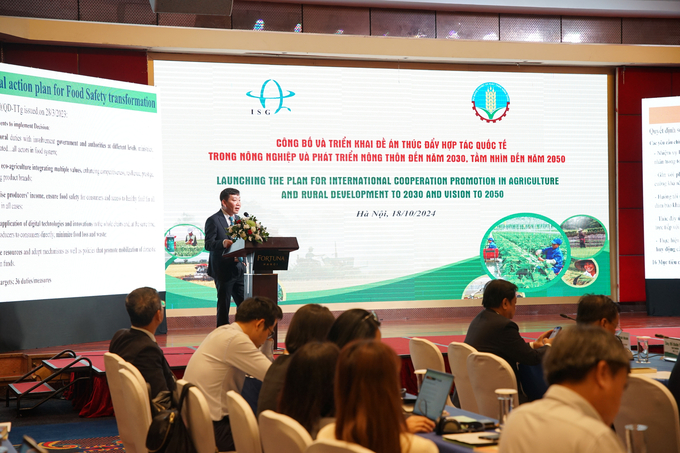
Mr. Nguyen Do Anh Tuan, Director of the International Cooperation Department at MARD speaking at the launching of "Plan for internation cooperation promotion in agriculture and rural Development to 2030 and vision to 2050”. Photo: Linh Linh.
On october 18, the Ministry of Agriculture and Rural Development (MARD) unveiled the "Plan for internation cooperation promotion in agriculture and rural Development to 2030 and vision to 2050”. This announcement signals a monumental step forward in Vietnam’s quest to deeply integrate its agricultural sector into the global economy, propelling sustainable development and elevating the country’s standing on the world agricultural map.
This comprehensive plan is not merely a long-term roadmap but a profound commitment by Vietnam to confront global challenges, particularly in the critical areas of food security, climate resilience, and rural development. As the world grapples with the effects of climate change, rising population demands, and the need for sustainable food systems, Vietnam's proactive approach positions it as a crucial contributor to these global solutions.
According to Mr. Nguyen Do Anh Tuan, Director of the International Cooperation Department at MARD, the plan’s primary goal is to transform Vietnam’s agricultural sector into an eco-friendly powerhouse. This entails cultivating ecological agriculture, modernizing rural areas, and significantly enhancing the civilized living standards of farmers. These objectives will form the bedrock of Vietnam’s agricultural strategy as it evolves from a regional agricultural exporter to a key global player, not just in terms of export volume but as a nation fully engaged in resolving the world’s most pressing agricultural, environmental, and sustainable development challenges.
At the focus of this strategic vision is a clear objective, Vietnam is determined to achieve USD 70 billion in exports of agricultural, forestry, and fishery products by 2030. This target is contributed by efforts to gain global recognition for the country’s flagship agricultural sectors in major international markets. Moreover, the plan outlines an approach to attract Foreign Direct Investment (FDI), with an expected USD 25 billion influx into the agricultural sector. Of these, 30% is assigned to high-tech and green agricultural projects. Such investments are critical to fostering the sustainable growth of Vietnamese agriculture, while simultaneously reinforcing strong linkages between local enterprises and global value chains.
One of the plan’s most pivotal aspects is the strategic development of Vietnamese agricultural product brands on the global stage. To this end, Vietnam aims to actively pursue bilateral and multilateral Free Trade Agreements (FTAs), ensuring that its agricultural products meet stringent international standards for quarantine and quality management. By focusing on product quality, sustainability, and brand-building, Vietnam seeks to not only increase the added value of its agricultural exports but also to significantly enhance their competitiveness in the global marketplace.
A key pillar of this plan is the strengthening of Vietnam’s international partnerships within the agricultural sector. Vietnam aims to expand its strategic and comprehensive cooperation with a wide range of countries while taking an active role in international organizations such as the United Nations (UN), the Food and Agriculture Organization (FAO), the World Trade Organization (WTO), and ASEAN. By doing so, Vietnam will not only assert itself as a proactive leader in global agricultural initiatives but also elevate its role in international forums, contributing to the world’s agricultural dialogue and policy-making processes.
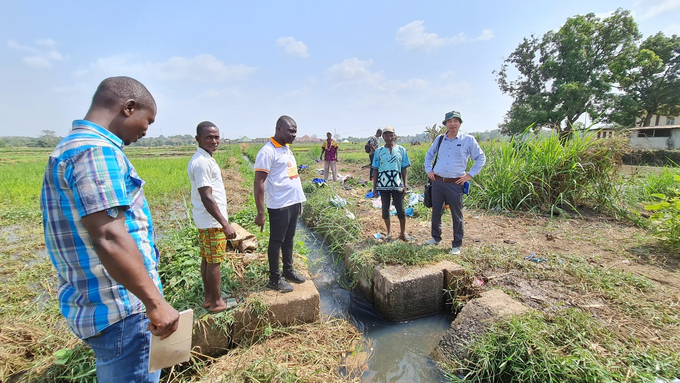
The agricultural cooperation project between Vietnam, the FAO, and Sierra Leone has already proven to be a model of success.
Beyond multilateral cooperation, the plan also emphasizes enhancing bilateral cooperation, particularly with African countries and other developing nations, through trilateral or multilateral initiatives. The agricultural cooperation project between Vietnam, the FAO, and Sierra Leone has already proven to be a model of success. This initiative, which promotes agricultural collaboration among developing countries, is set to expand further in the coming years, demonstrating Vietnam's capacity for leadership in fostering South-South cooperation.
Beyond simply attracting investment and fostering international cooperation, the plan also recognizes the vital importance of developing high-quality human resources for the agricultural sector. Every year, hundreds of Vietnamese officials, students, and interns will be sent abroad to study and undergo training, aimed at enhancing their expertise and capacity for international integration. This strategic move will not only prepare Vietnam for the long-term, sustainable development of its agricultural sector but also create strong connections between the country’s human capital and the advanced technologies of developed nations.
The plan thus establishes Vietnam’s commitment to innovation, ensuring that the agricultural sector remains at the forefront of technological advancements. By integrating global best practices, Vietnam will continue to strengthen its agricultural productivity while safeguarding the environment and enhancing the livelihoods of its rural populations.
With a diverse range of solutions, the “Plan for internation cooperation promotion in agriculture and rural development to 2030 and vision to 2050” extends far beyond mere economic objectives. It presents a strategy designed to improve the quality of life for Vietnamese farmers, protect the country’s fragile ecological environment, and build a sustainable agricultural future. In this era of deepening globalization, Vietnam’s emphasis on fostering international cooperation in agriculture will open new doors of opportunity, allowing the country to extend its reach far beyond its borders and affirm its position as a rising star in the global agricultural community.
As Vietnam strives toward this bright future, the country’s agricultural sector is poised to become a beacon of sustainability, resilience, and innovation on the world stage, providing a model for other nations to follow in the pursuit of sustainable agricultural practices and rural development. With firm international partnerships, a strong focus on human resource development, and a commitment to technological advancement, Vietnam’s agricultural sector is set to thrive and continue contributing significantly to the global economy.
Translated by Linh Linh
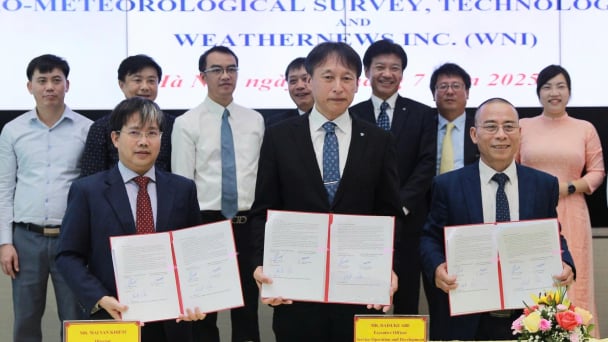
(VAN) Vietnam and Japan are strengthening cooperation in disaster preparedness, with a new initiative focusing on integrating artificial intelligence (AI) into typhoon and flood warning systems.
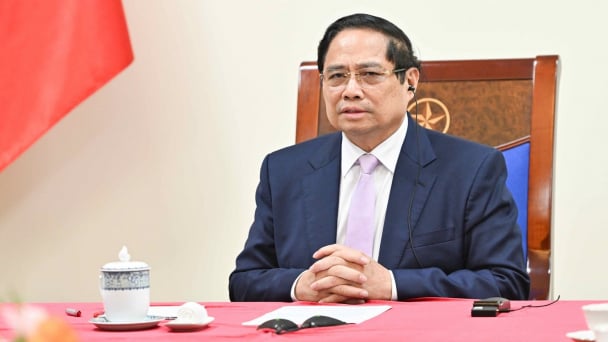
(VAN) Prime Minister Pham Minh Chinh and Malaysian Prime Minister Anwar Ibrahim discussed the early signing of rice trade agreement for Vietnam to support Malaysia's food security.
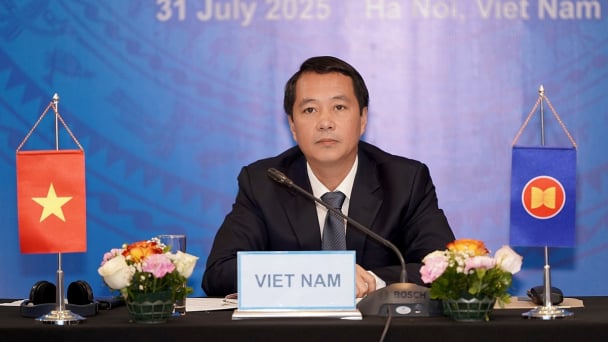
(VAN) At the July 31 meeting on CITES, Vietnam proposed legal reforms and expanded cooperation to effectively address transnational wildlife trafficking crimes.
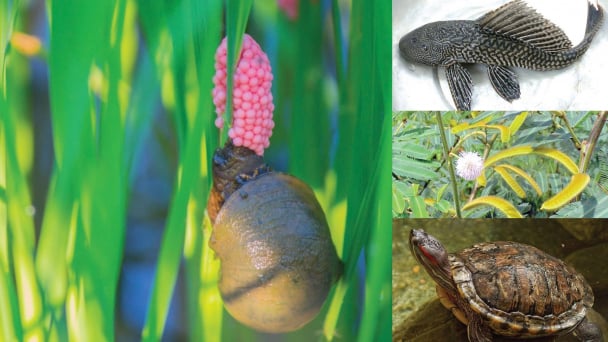
(VAN) Vietnam views management of invasive alien species as a pressing task, aimed at protecting biodiversity and local livelihood security.
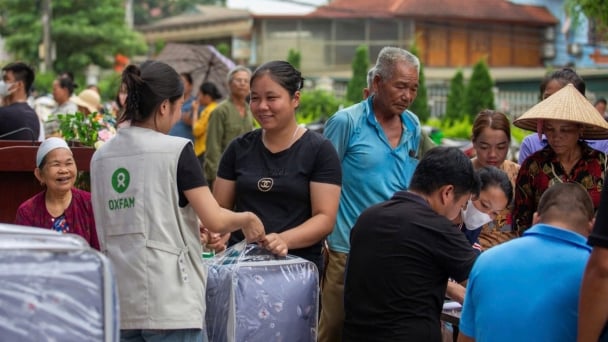
(VAN) On July 30, the Phu Tho Provincial Women's Union, in collaboration with Oxfam, organized a workshop to summarize the 2024 Project on Post-Typhoon Yagi Recovery.
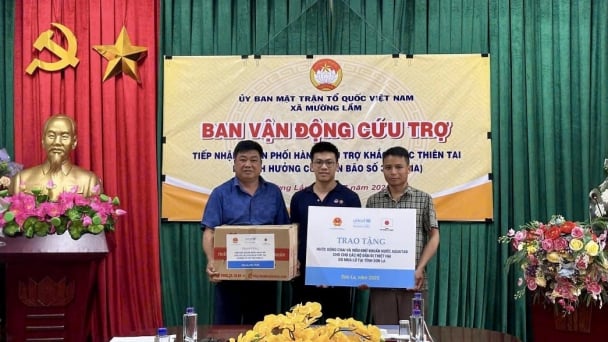
(VAN) UNICEF, in coordination with the Ministry of Agriculture and Environment, provided timely clean water support to residents in Son La and Nghe An affected by Typhoon Wipha.
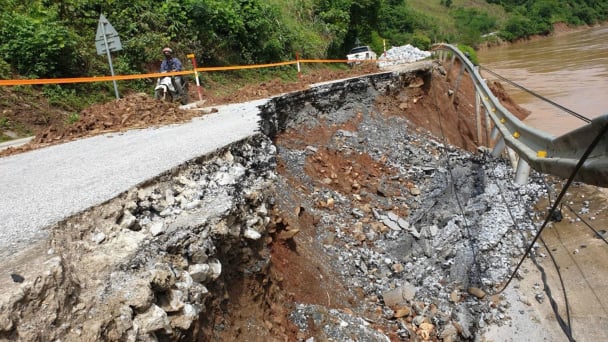
(VAN) According to Standing Office of the Steering Committee for Disaster Prevention, Search and Rescue, and Civil Defense of Nghe An, the province has incurred flood-related damages totaling nearly 3.4 trillion VND.